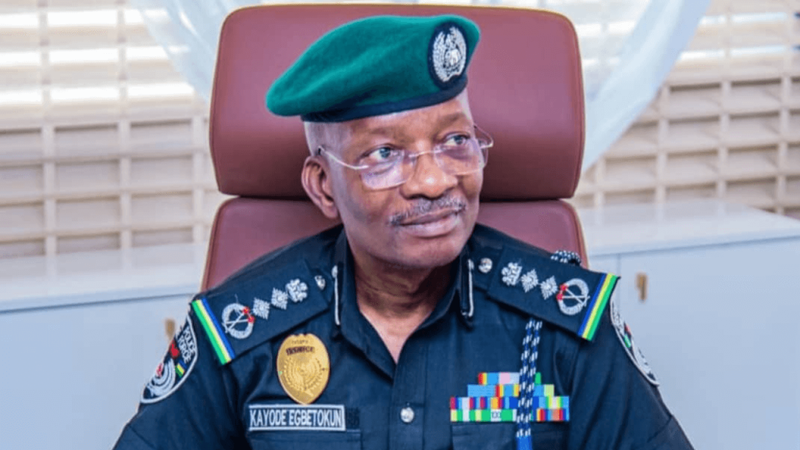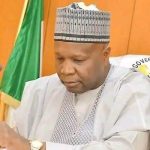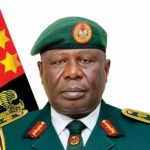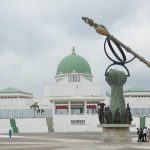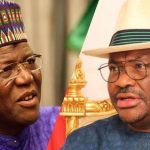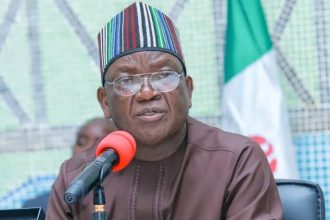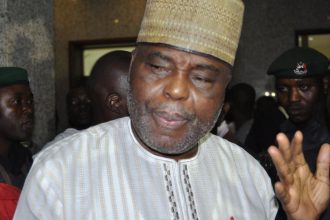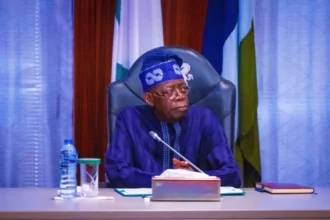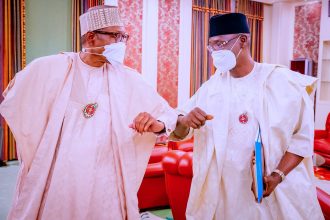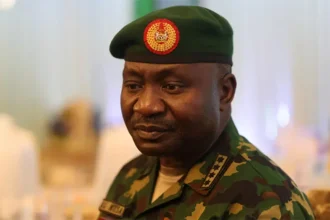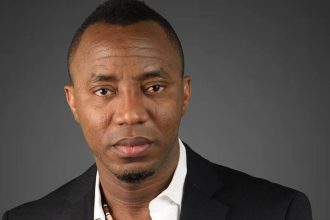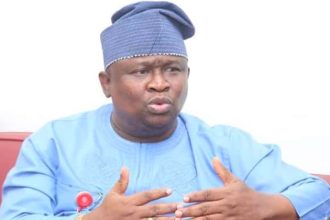The decision by President Bola Tinubu to retain Inspector-General of Police (IGP), Kayode Egbetokun, has continued to generate reactions across political circles, with prominent leaders and parties divided over the move.
A chieftain of the Peoples Democratic Party (PDP) and former Chairman of its Board of Trustees, Chief Bode George, has urged the Federal Government to look beyond appointments and focus on establishing state police as the only sustainable solution to Nigeria’s worsening insecurity.
Speaking in an interview with PUNCH, George said while the President had the constitutional right to hire or fire service chiefs, the retention of the IGP would not address the nation’s deep-rooted security challenges.
“I don’t know if retaining the IG has some ethnic connotations,” he said. “There are two evils the British left for us in this country, religious and tribal bigotry. Anything we do here, people see it through the lenses of ethnicity and religion.”
The retired Navy Commodore acknowledged that as the Commander-in-Chief, Tinubu had the prerogative to make security appointments as he deemed fit, saying the recent reshuffle among the service chiefs appeared “balanced” across Nigeria’s geopolitical zones.
“As the Commander-in-Chief, it was his choice to make,” George said. “One would say the choice of the new service chiefs is evenly spread across the geopolitical zones.”
He noted that the police leadership changes in recent months might have spared Egbetokun “the broom that swept other service chiefs away,” hinting that political considerations may have influenced the decision.
‘Military Lost Its Unity When It Entered Politics’
George lamented the erosion of unity and professionalism within the military since its foray into politics decades ago.
“What almost destroyed the military is its incursion into politics,” he stated.
“The oneness we used to enjoy nearly went with the wind. Today, colleagues in the military often envy one another. In our own time, whoever was next to you was your comrade, your brother. We lost it when we went into politics.”
He stressed that the military must regain its professionalism, warning that insecurity would persist unless the government implemented state policing.
“The lack of a solution to insurgency is because we have refused to establish state police,” he said. “Policing is local. When state police are established, officers will be recruited from their localities. They speak the language, know the culture, and know themselves. That’s how policing should work.”
George concluded that no amount of reshuffling or political balancing would solve Nigeria’s insecurity problem without true federalism and state policing.
“Policing is local, it can’t be effectively done from Abuja,” he said. “We can’t continue pretending that one centralised police force can secure over 200 million people. The earlier we restructure, the better for our country.”
NNPP Questions Egbetokun’s Tenure Extension
However, not everyone agrees with the President’s decision. The New Nigeria Peoples Party (NNPP) expressed disapproval, questioning the rationale behind the IGP’s retention despite having attained the official retirement age.
The party’s National Publicity Secretary, Ladipo Johnson, said the NNPP was concerned that the President extended Egbetokun’s tenure after appointing new service chiefs.
“As a party, we wonder what informed the tenure extension granted to the Inspector-General of Police, Kayode Egbetokun, by the President when he clocked 60 not long ago,” Johnson said.
“The President has changed his service chiefs, and since the IGP is one of them, we don’t know the reason for his retention. Like other Nigerians, we are watching.”
In contrast, the All Progressives Grand Alliance (APGA) and the Young Progressives Party (YPP) both commended President Tinubu for retaining the IGP, saying his decision should be respected as one made in the best interest of national security.
The National Publicity Secretary of APGA, Ejimofor Opara, said the President, as Commander-in-Chief, had access to intelligence and information not available to the public.
“The Commander-in-Chief has access to information that is not at our disposal,” Opara said. “I am sure he did it (retention of Egbetokun) in the best interest of the nation.”
His YPP counterpart, Wale Martins, also welcomed the President’s action but argued that the shake-up in the security sector should have been more extensive.
“The recent appointment of new service chiefs, in our view, adequately reflects Nigeria’s ethnoreligious and regional diversity,” Martins said.
“However, the shake-up should have been more comprehensive. The challenges confronting our national security are systemic and widespread; hence, no arm of the security apparatus should have been exempted from review.”
Martins further noted that retaining Egbetokun despite his due retirement raised legitimate questions about the need for fresh perspectives and renewed energy within the security establishment.
“Considering that the IGP’s retirement is already long overdue, retaining him raises legitimate concerns about the need for fresh perspectives and renewed energy,” he said.
“Those who have been part of the old order with limited results to show are unlikely to deliver the transformative change Nigerians desire in the security sector.”

